What to expect after your surgery?
- Pain – It is normal to experience some pain initially. Do take the prescribed pain medicine or use the patient-controlled analgesia.
- Physiotherapy – The physiotherapist will attend to you upon doctor’s referral. You will be assisted to mobilise out of bed and do short distance walking.
- Collar/brace – You may be required to wear your collar/brace for _____weeks/months. Please keep to the duration indicated by your surgeon.
- Outpatient Physiotherapy as referred by your surgeon / physiotherapist
- 2 – 4 weeks or
- After 6 weeks
Patient Centered Goal:
Set your goal.
- What would you be able to do or achieve?
- When do you want to be able to achieve the task?
I want to be able to ____________________________ by _____________
Immediate Post-Operative Care
| 1. Turning and getting up from bed:
a) Bend your knees. b) Reach your arm across your body and roll onto your side. c) Bring your legs over the edge of the bed and at the same time push yourself into a sitting position.
| 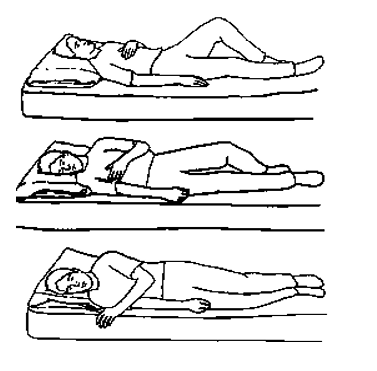
|
2. Getting into bed: Do the above steps in reverse order. Sit on the edge of the bed and slowly lower yourself down onto your side. Lift up your legs at the same time.
|
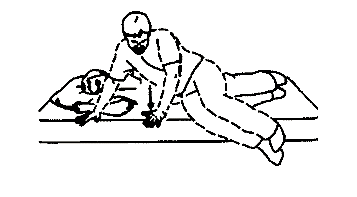 |
| 3. Walking / Sitting out:
Moving early, as allowed by your surgeon, reduces post-operative complications and enhances your recovery.
|
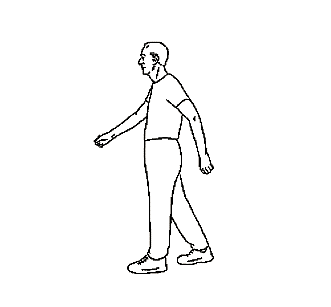 |
4. Remove soft collar/brace when eating, showering or at rest
|
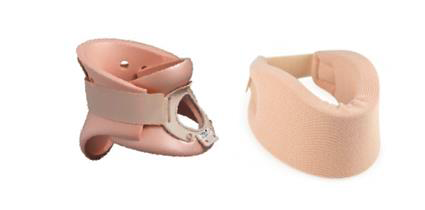 |
5. Pacing of activities
|
|
Exercises
It is recommended that you perform these exercises as indicated* by your physiotherapist following his/her assessment. These exercises should not aggravate your neck or back pain.
|
Deep breathing exercise
Take a deep breath in through your nose and feel your lower chest expand outwards. Hold for 3 seconds and blow out slowly. Repeat 10 times every hour.
| 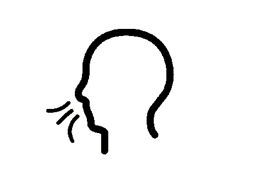
|
| Ankle pumps
Point your toes up towards your face and then point downwards to the edge of bed. Repeat 10 times every hour.
|
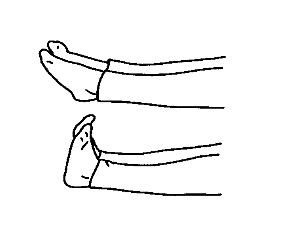
|
| Heel slides
Gently move your leg up and down the bed. Repeat 10 times for each leg.
|
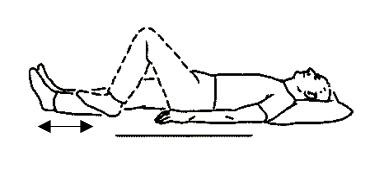 |
| Shoulder rolls and hand pumps
Shoulder rolls - Slowly rotate your shoulders forwards, making big circles. Repeat the movement backwards, 10 times for each set.
Hand pumps – Clench your fist and open up your fingers repeatedly for 10 times.
|
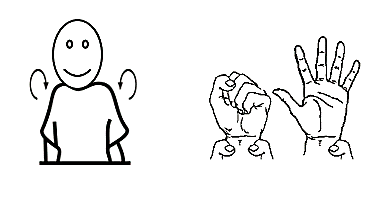 |
| Standing bilateral heel raises
Stand with hands supported on a stable surface. Keep your back straight and gently raise both heels. Repeat 5 – 10 times.
|
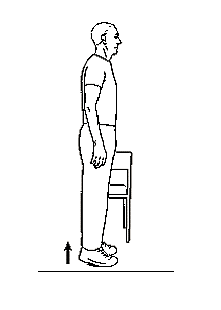 |
After Your Surgery - Advice
The following instructions are general and may vary depending on your condition.
Do check with your surgeon or physiotherapist should you have any questions.
Activity |
General Advice
|
Twisting | No twisting or excessive movement of your neck for the first 4–6 weeks. Functional range for comfort within collar is allowed. Laundry: Avoid bending over to wash or hang clothes. |
Lifting | No carrying of more than 5kg of load for the first 4 – 6 weeks. Carry items closer to body. |
Sitting | Start with 20 minutes and gradually increase sitting time. Regular movement is recommended i.e. every 30-40 minutes. |
Walking* | Start with a short distance and progress outdoor over the weeks. A general guide: 0 – 2 weeks: 5 – 10 minutes as tolerated, 3 – 5 times daily 3 – 4 weeks: 10 – 20 minutes as tolerated, 3 – 5 times daily |
Cycling | Start with 10 minutes on a stationary bike after 2 weeks. Gradually increase the duration. Stop if there is any increase in symptoms. |
Driving | 0 – 2 weeks: No driving 2 – 4 weeks: Drive only for short journeys *Check with your doctor before resuming driving. |
Return to work – Deskbound | Usually after 2 – 4 weeks. Avoid sitting for prolonged durations. Keep to 30 – 45 minutes of sitting. Stand and walk around from time to time. |
Return to work – Physical | Usually after 8 – 12 weeks. This may vary depending on your job nature. Do check with your surgeon. |
Return to sport | Depending on the type of sport, please consult your surgeon or physiotherapist regarding the time frame.
|
When to be concerned?
Please inform your doctor if you experience any of the following:
- Changes in bowel and urinary continence
- Severe reduction in arm or leg strength
- Persistent fever
- Bleeding / Oozing from wound
Related
